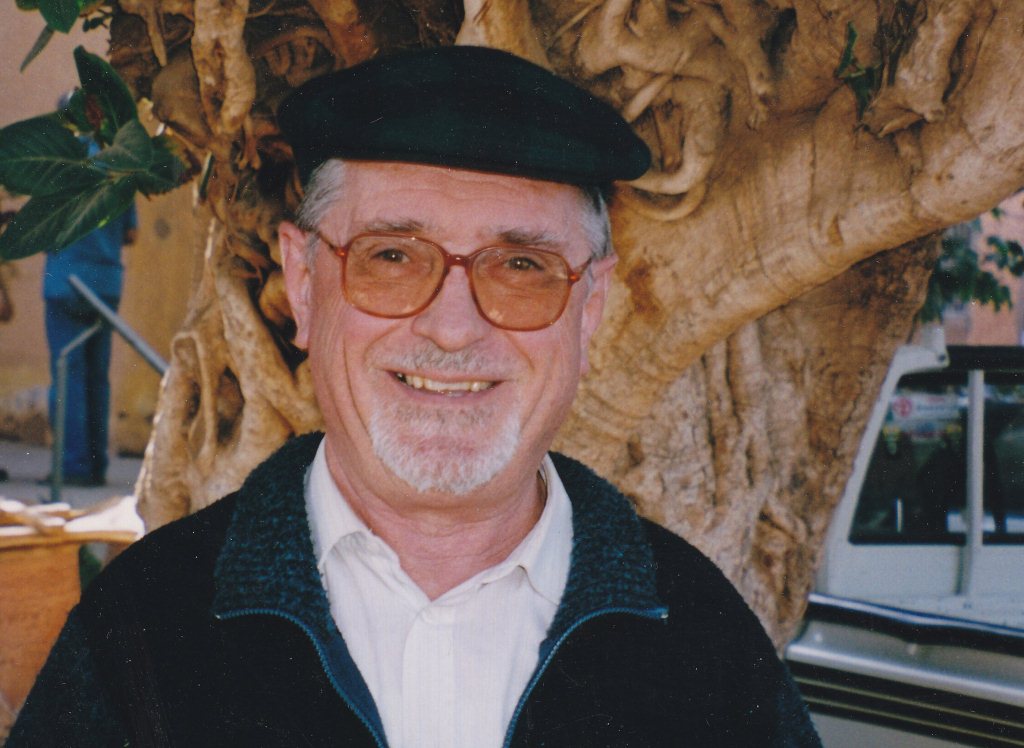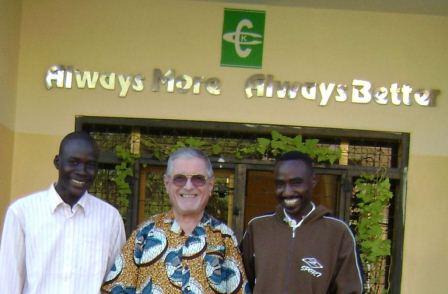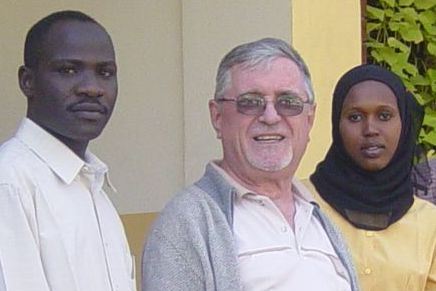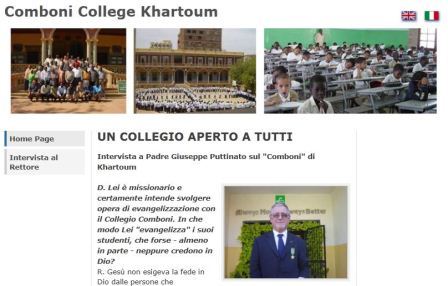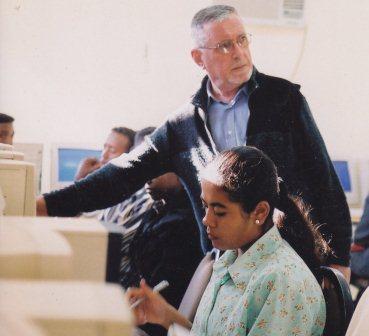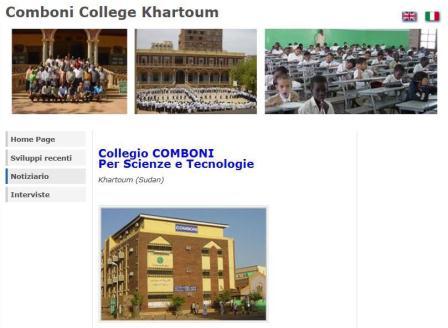Daniel Comboni
Comboni Missionaries
Institutional area
Other links
Newsletter
Rome, Wednesday, October 24, 2012
With the independence of South Sudan and the exodus of the Christians from the North towards the South, some people thought the Comboni schools in Sudan, meant primarily for Christians, would have closed. On the contrary, this year there has been an increase in attendance at the schools. “The applications to the Comboni College of Science and Technology of Khartoum are dozens more than last year’s, has said the Comboni missionary, 79 year old Fr. Giuseppe Puttinato (photo), rector of the University College – Catholic – in the Republic of Sudan.
The Comboni College of Science and Technology (CCST) of Khartoum was founded by the Comboni Missionaries in 2001 within the campus of the Comboni College Khartoum (CCK) which is a primary and secondary school founded in 1929. The CCST is a post-secondary institution leading to the first university steps – namely to a bachelor’s degree in the English and American system – in Computer Science, English Language and Literature (with Arabic and Italian as minors), in Education and Religious Sciences, in four to four and a half years of study. Two other programs, Accounting and Financial Administration, lead to a diploma in Information and Technology (IT) in the course of three years. The university College offers also short courses of a few months to 300 adults who want to learn English, Italian, Spanish or the basic knowledge of computer and of the technologies of information.
The CCST is held in high esteem in the country. According to the Rector, an Italian missionary from Ceregnano, “the university College is open to all, without any distinction of race or religion, and is approved by the Sudanese Ministry of Higher Education which controls the qualifications of the teachers and the exams of the students, and signs the certificates at the end of the studies.”
After having described the courses offered by the CCST, Fr. Giuseppe, missionary in Sudan since 1959, speaks of numbers. “Contrarily to the other Comboni primary and secondary schools in Sudan, where the Moslem students are the majority – at times almost the totality – at the CCST Christians make up 60%, for the most part Orthodox from Eritrea. The number of the students at university level in October 2012 2as about 500, with about 50% Sudanese, 15% South Sudanese and 35% non Sudanese – these for the majority being Eritreans. With the 300 students of the short courses we have reached 800 students for the academic year 2012. The percentage of girls in the university courses is 33%: it would be 45% without the students of ERS – the program of Education and Religious Sciences for the formation of Christian teachers – where the girls, for reasons still unknown are very few.”
On the help given to the students, Fr. Giuseppe states: “The students that are financially assisted are 100 (20% of the total). To them we offer a discount on the yearly fees of between 30 and 50%. At the end of this year (2012) the graduates will be 370. Some of the graduates continue their studies in some university; a good number will easily find employment in government and private offices. The Eritreans and the Ethiopians hope to migrate as soon as possible to Europe or America.”
Concerning self-sufficiency, the Rector foresees that “with the constant increase in the number of students, total self-sufficiency will be attained within one or two years. The financial self-sufficiency of the CCST – without the ERS program which is administered by the Archdiocese of Khartoum – is already above 80% in 2012.”
To the question over the “Catholic” identity of the CCST, Fr. Giuseppe Puttinato explains that “this is expressed by the College itself: to be open to students and teachers of both sexes and of every race, religion, color and nationality; to be faithful to the teachings of the Catholic Church under the guidance of the hierarchy of the local Church; to inculcate values, ideals and evangelical principles in all the academic activities, with the due respect to the freedom of conscience of every person; to respect the religious faith of everyone; to promote harmony and cooperation among students and between students and teachers of different faith, race and nationality; to serve others, especially the poor and the disabled, without expecting any recompense for favors rendered; to ensure the pastoral care of Catholic students, teachers and employees; to cooperate with the Church in promoting human progress and the development of a Sudanese Christian culture.”

